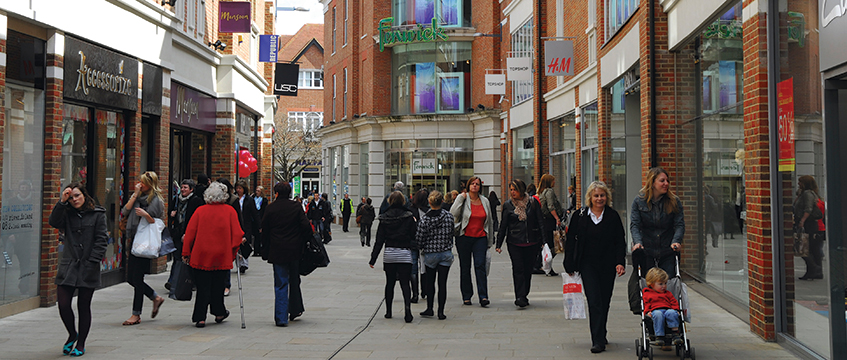As town centres continue to struggle, locals remain unconvinced that co-working space and offices can revive them, voting them to be the least desired alternative uses to retail.
Only around 7% of shoppers would like to see co-working and office space in town centre schemes, according to asset manager Ellandi’s Real Shopper survey, which collected data from more than 5,000 people.
Health and medical services were at the top of the wish list, with 35% voting for the category, followed by community events (30%) and green transport links (around 28%).
Speaking at Ellandi’s annual Retail Rocks event at the National Gallery, WC2, The Office Group’s co-founder and co-chief executive, Charlie Green, nonetheless argued the case for offices on the high street, although he said the economics are likely “not right” in smaller towns.
“The interesting offer – and I don’t think it’s for [our] business – could be that [co-working spaces] become part of the high street, taking retail to offer drop-in working, lounge co-working, meeting facilities,” Green said.
But in the meantime, physical retail’s own place in town centres looks set to remain a key component. Helen Burgess, group property director at WHSmith, said the retailer’s small market town stores have been the most resilient in its high street portfolio of some 500 shops.
Burgess said her team’s efforts to create “a hub on the high street”, by tailoring product ranges for each catchment and adding post offices to around 200 of those locations, have been crucial in ensuring their relevance to communities.
Creating a positive social impact
Morgan Garfield, co-founder of Ellandi, said the fact that real estate values have been “absolutely smashed, both pre- and during Covid, is a massive opportunity for placemaking” and repurposing properties “away from a monoculture of retail”.
But Garfield added that as investor confidence grows and more retail assets are snapped up, the industry needed to “get its arms around quantifying social impact”.
Vidhya Alakeson, chief executive at Power to Change, highlighted the complexities of creating a positive social impact without standardised metrics for measuring it. Moreover, she noted that social return “is not priced in at all”, and social targets such as setting the number of people to employ locally are not widely made a condition for deals.
Alakeson also described a “mismatch” between “the scale at which capital wants to move and the ways in which smaller organisations are creating value in their communities”, despite the likes of the Heritage Trust “trying to hold organisations together to attract capital of scale”.
Pete Gladwell, group social impact and investment director at L&G Group, underlined the need to “scrutinise” and identify the “right pools of capital” to match with the social need for investment, while generating fair returns.
“It might be social investment, if it’s at the right impact level, it might be long term patient capital, it might be banks,” he said. “It’s about us working collaboratively and particularly with local authorities.”
Alakeson said there is “a need for an ecosystem of investment types to solve the challenges” facing each place. “The real change comes when we put those pots of capital together,” she said.
Rupert Robinson of RSBGI, investment adviser to RAG-Stiftung, suggested that providing consultancy services to enable local authorities to source the right forms of capital could be a way to create a social impact. “The investment world has a responsibility to help,” he said.
Changing assets for good
For Garfield, the industry is at the start of the journey in working out connectivity and access to the right pools of capital.
“People are going to trade these assets, some of them for the first time in generations, some of them that have been flipped so many times there has been no investment,” he said. “But there is now going to be an opportunity for the right people to get their hands on these assets and to change them for good.”
Bruce Findlay, managing director of retail at Landsec, which recently outlined plans to invest in shopping centres again, said it is “on all of us to raise the bar – invest in the right things, not quick wins”.
Christian Rogers, head of commercial at Sefton Council, which bought the Strand shopping centre in Bootle for £32.5m in 2017, said: “It’s scary. We borrowed a lot of money to buy that shopping centre. We didn’t buy it to make a buck – it’s a cornerstone asset for a whole community.
“It is reassuring to hear that business and investors are much more alive to the opportunities and the fact it is good business to invest where there is a social agenda. There are a whole load of opportunities for us to do it right.”
To send feedback, e-mail pui-guan.man@eg.co.uk or tweet @PuiGuanM or @EGPropertyNews











